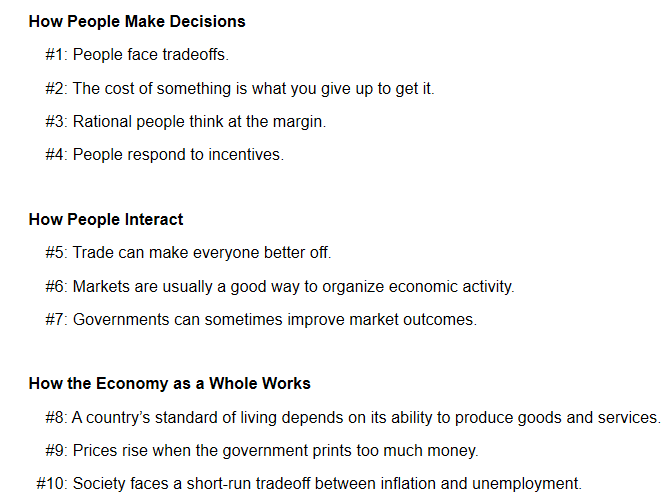ECON 248 1.3 + 1.4 How The Economy Works As A Whole
1/10
There's no tags or description
Looks like no tags are added yet.
Name | Mastery | Learn | Test | Matching | Spaced |
|---|
No study sessions yet.
11 Terms
The 8th economic principle states that a Country’s () depends on it’s ability to produce () and ().
Standard Of Living, Goods, Services
The amount of goods and services produced from each input of labour.
Productivity
The 9th economic principle is that prices () when the government prints () money.
Rise, Too Much
An overall increase in price levels within the economy.
Inflation
The 10th principle of economics is that society experiences a () between unemployment and inflation.
Short-Term Tradeoff
Due to inflation, the demand for goods and services (1), causing more (2) from firms to keep up with an (1) demand. It also encourages firms to raise (3).
Increases, Employment, Prices
The largely unpredictable fluctuations in economic activity, measured by the production of goods and/or services or employment numbers.
Business Cycle
The short term tradeoff between inflation and employment can be limited and bolstered via changes in (), the amount the government (), and how much () is printed.
Taxation, Spends, Money
A term used to describe the factors which guide a household or firm to buy or sell a good or service.
Invisible Hand
What is shown in the following Image?
The 10 principles of economics.

A corrupt institution has a lower standard of living since they typically don’t enforce (), which discourages workers from being productive since the goods and services they buy can be () at any time.
Property Rights, Taken